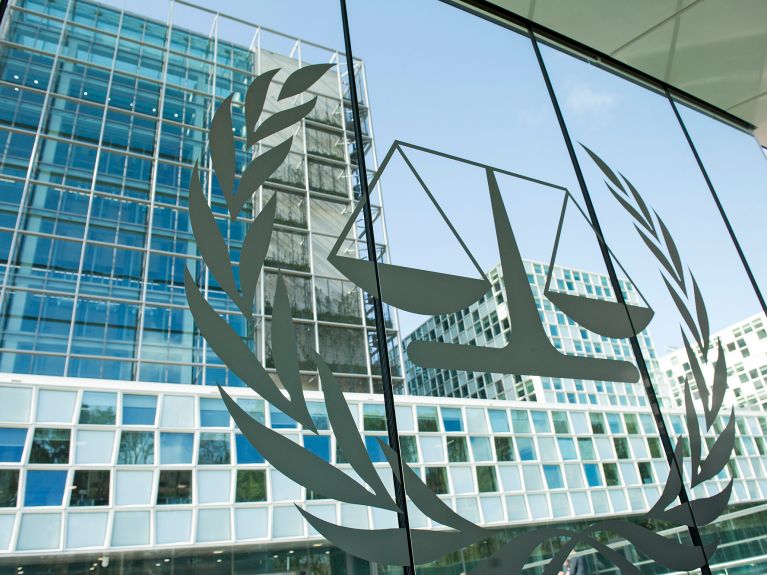Important message from The Hague
Why Germany is such a strong supporter of the controversial International Criminal Court

The International Criminal Court based in The Hague (Netherlands) was already controversial in 1998 during the diplomatic negotiations in Rome on its foundation – and has remained so until the present. Germany has been one of its most resolute supporters from the very beginning. That is also still the case today.
Why does the world need a criminal court?
To ensure that the worst international crimes, such as genocide, crimes against humanity, war crimes and aggression do not go unpunished – and to deter potential perpetrators. As a result, the International Criminal Court (ICC) sends an important message.
When does the International Criminal Court act?
It does not replace the work of national courts, but complements them. The ICC only takes up a case if a country is unwilling or not in a position to prosecute a criminal offence. Its jurisdiction is claimed to have worldwide validity, but currently it is still restricted in practice.
Does this then mean that the law does not apply equally to all?
It does not at the moment, because the ICC is not yet accepted by all countries. States like the USA, China and Russia continue to regard the court with considerable scepticism. However, 123 countries have acceded to the Statute of the International Criminal Court – and their number will continue to grow. The ICC is still in a process of development. Staying power will be required to realise the idea of universal jurisdiction. Even 20 years is not a very long time for a visionary project like this.
Why do critics consider it an African “colonial court”?
Because many of the 26 cases it has dealt with so far took place in Africa. However, the ICC has frequently been active in Africa because states themselves have called upon the court. Furthermore, this impression reflects one specific point in time: meanwhile, for example, The Hague has taken up the treatment of the Rohingya in Myanmar.
Countries are withdrawing – will that lead to a crisis for the ICC?
This is not a widespread phenomenon: Burundi, South Africa, Gambia and the Philippines have announced their withdrawal, but only Burundi had actually done so by autumn 2018. South Africa and Gambia have revised their decision. Nevertheless, it is the case that an institution like the ICC can come under criticism in the current political climate, which is tending to give impetus to nationalist forces.
Where does Germany stand on the International Criminal Court?
Nothing has changed with regard to Germany’s supportive stance; Berlin regards the ICC as the logical further development of the military tribunals of Nuremberg and Tokyo. In the light of its own history, the Federal Government supported the establishment of such a court for the very beginning, because it closes a gap in international justice. The fact that today the court can not yet work as deliberately and seamlessly as had been hoped is not an argument against its existence, but a reflection of political realities. These can change again in the future. From the German perspective, it is all the more important to continue working calmly in order to slowly but surely strengthen the court.
Newsletter #UpdateGermany: You would like to receive regular information about Germany? Subscribe here to:
